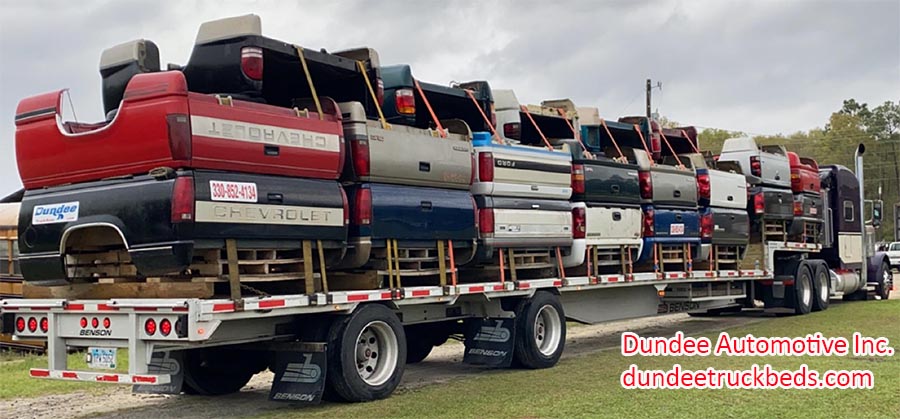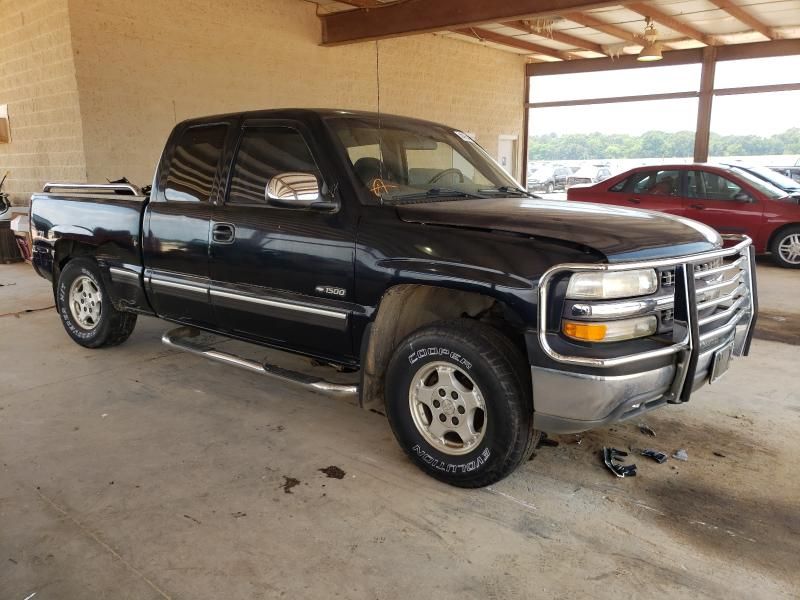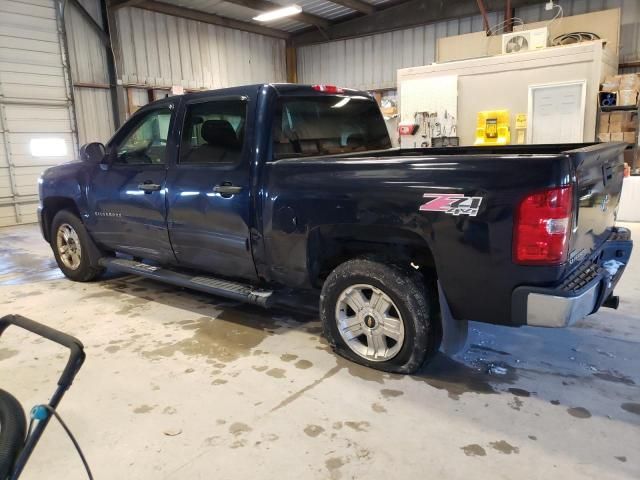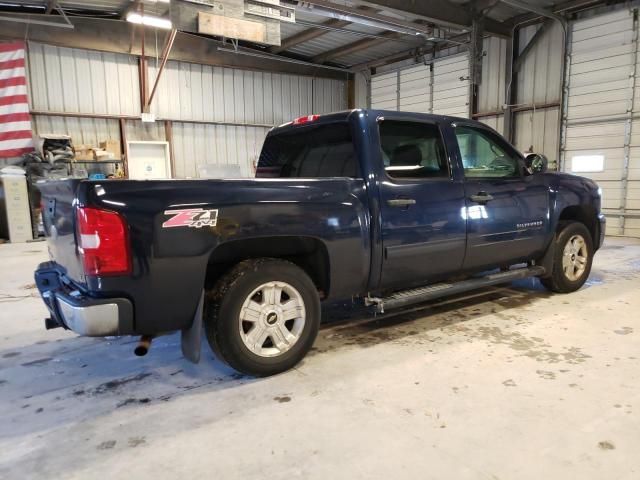Salvage Pickup Trucks For Sale: Unlocking Value and Opportunity pickup.truckstrend.com
Introduction: The Hidden Gems of the Automotive World
For many, the thought of a "salvage" vehicle conjures images of mangled metal and irreparable damage. However, for the discerning buyer, mechanic, or project enthusiast, salvage pickup trucks for sale represent a unique frontier of opportunity, value, and potential. These are vehicles that, for various reasons—be it collision, flood, fire, theft recovery, or even minor hail damage—have been declared a "total loss" by an insurance company. This designation means the cost of repair exceeded a certain percentage of the vehicle’s actual cash value, leading to a "salvage title."
Salvage Pickup Trucks For Sale: Unlocking Value and Opportunity
But a salvage title doesn’t necessarily mean the end of the road for a pickup truck. Instead, it often marks the beginning of a new chapter. For those willing to invest time, effort, and a calculated risk, a salvage pickup truck can be transformed into a reliable daily driver, a formidable off-road beast, a valuable parts donor, or a highly profitable resale. This comprehensive guide will navigate the intricate world of salvage pickup trucks, offering insights, practical advice, and everything you need to know to make an informed decision and unlock the hidden potential of these often-overlooked vehicles.
Understanding the Salvage Why Trucks Get This Designation
A vehicle receives a salvage title when an insurance company determines that the cost to repair it to its pre-damage condition is greater than a specific percentage (which varies by state, often 70-100%) of its actual cash value (ACV). This decision is made purely from an economic standpoint, not necessarily because the vehicle is beyond repair.
Common reasons a pickup truck might receive a salvage title include:
- Collision Damage: The most common reason. Impacts can range from minor fender benders to severe structural damage.
- Flood Damage: Vehicles submerged in water, even briefly, can suffer extensive electrical, mechanical, and interior damage, leading to a salvage title.
- Fire Damage: Burns can affect wiring, interiors, and structural components.
- Theft Recovery: If a truck is stolen and recovered after an insurance payout, or if it sustained significant damage during the theft, it may be issued a salvage title.
- Hail Damage: Severe hail can cause widespread dents and broken glass, making repairs expensive even if the truck is mechanically sound.
- Vandalism: Extensive cosmetic damage or destruction of interior components can also lead to a salvage designation.

It’s crucial to understand that a salvage title indicates the state of the vehicle at the time of the insurance payout, not its ultimate usability. With proper repair and inspection, a salvage titled truck can often be re-titled as "rebuilt" and legally driven again.

The Allure of Salvage Pickup Trucks: Benefits and Opportunities
The primary draw of purchasing a salvage pickup truck is undoubtedly the significant cost savings. These vehicles are typically sold for a fraction of their clean-title counterparts, often 30-50% less, or even more depending on the extent of the damage. This price difference opens up a world of opportunities:
- Affordable Project Vehicles: For enthusiasts, a salvage truck is a blank canvas. It’s an opportunity to learn mechanics, customize a vehicle to your exact specifications, or build an off-road rig without the fear of damaging an expensive, clean-title truck.
- Parts Donors: If you own a specific make and model, a salvage truck of the same type can be an invaluable source of spare parts, saving you money on new components.
- Profitable Resale: With the right skills and resources, you can repair a salvage truck, get it re-titled as "rebuilt," and sell it for a profit. This requires careful calculation of repair costs and market value.
- Budget-Friendly Daily Drivers: For those with mechanical aptitude or access to affordable repair services, a carefully selected and properly repaired salvage truck can become a reliable and inexpensive daily driver.
- Learning Experience: Working on a salvage vehicle provides hands-on experience in auto repair, bodywork, and troubleshooting, invaluable for aspiring mechanics or DIY enthusiasts.

Navigating the Purchase: Where and How to Buy Salvage Trucks
Buying a salvage pickup truck is different from a traditional vehicle purchase. Here’s how to approach it:
Where to Look:
- Online Salvage Auctions:
- Copart: One of the largest global online vehicle auction companies, offering a vast inventory of salvage vehicles, including trucks. Requires registration and often a broker for non-dealers.
- IAA (Insurance Auto Auctions): Another major player, similar to Copart, with extensive listings.
- eBay Motors: Sometimes individual sellers list salvage vehicles.
- Local Salvage Yards/Auto Recyclers: Many traditional junkyards also sell salvage vehicles whole. This allows for in-person inspection before bidding.
- Government Auctions: Occasionally, law enforcement or government agencies auction off seized or surplus vehicles, some of which may have salvage titles.
- Private Sellers: Less common, but some individuals repair and sell salvage vehicles, or sell them as-is.
The Buying Process:
- Registration: For online auctions, you’ll need to register, provide identification, and sometimes a deposit or a license (dealers have more access). Individuals may need to use a licensed broker.
- Search and Filter: Use the extensive filters on auction sites to narrow down your search by make, model, year, damage type, and location.
- Inspect Thoroughly: This is the most critical step.
- Online Inspection: Rely heavily on provided photos, damage descriptions, and vehicle history reports (like AutoCheck or CarFax, though these may be less detailed for salvage titles). Look for multiple angles, undercarriage shots, and interior views.
- In-Person Inspection (Highly Recommended): If possible, visit the auction yard or seller’s location. Bring a mechanic or someone knowledgeable about vehicle damage. Look beyond the obvious. Check for frame damage, signs of flood (musty smell, rust in unusual places, water lines), electrical issues, and engine health. Bring a flashlight and even a magnet to check for bondo.
- Set a Budget: Factor in the purchase price, auction fees, transportation costs, potential repair costs, re-titling fees, and any unforeseen expenses.
- Bidding: Understand the auction process. Set your maximum bid and stick to it. Be aware of buyer fees, gate fees, and other charges that add to the final price.
Crucial Considerations Before Buying: The Due Diligence Checklist
Purchasing a salvage truck carries inherent risks. Mitigate these by performing meticulous due diligence:
- Verify the VIN: Run a VIN check through services like CarFax or AutoCheck. While these reports might not detail every repair, they can confirm the salvage history, previous owners, and reported accidents.
- Assess Damage Type and Extent:
- Collision: Is it cosmetic (panels, bumper) or structural (frame, suspension)? Structural damage is harder and more expensive to repair correctly.
- Flood: Extremely risky. Water damage can lead to persistent electrical issues, rust, mold, and long-term mechanical failures. Unless you’re looking for parts, generally avoid flood-damaged vehicles.
- Fire: Can weaken metal, melt wiring, and cause lasting odor.
- Theft Recovery/Vandalism/Hail: Often less mechanically severe, making them potentially good buys if cosmetic repairs are manageable.
- Estimate Repair Costs: This is where many buyers go wrong. Get multiple quotes from body shops and mechanics for the identified damage. Factor in parts, labor, and potential hidden damage. Add at least 20-30% to your estimate for contingencies.
- Understand State Re-titling Laws: Every state has different requirements for converting a salvage title to a "rebuilt" or "reconstructed" title. This often involves:
- Proof of Repairs: Receipts for all parts and labor.
- Safety Inspection: A state-certified inspection to ensure the vehicle is roadworthy and meets safety standards.
- Forms and Fees: Specific paperwork and fees must be submitted to the DMV.
- "Branded" Even after being rebuilt, the title will often be "branded" as "rebuilt" or "reconstructed," which can affect its resale value.
- Insurance Implications: Insuring a rebuilt title vehicle can be more challenging and potentially more expensive. Some companies may only offer liability, not comprehensive or collision coverage.
- Transportation: How will you get the non-running or unsafe-to-drive truck from the auction yard to your repair shop or home? Factor in towing costs.
Repairing and Re-titling Your Salvage Truck: The Road to Redemption
Once you’ve purchased your salvage truck, the real work begins.
- Repair Phase:
- Safety First: Prioritize structural and safety-related repairs (brakes, steering, suspension, airbags).
- Quality Parts: Use OEM (Original Equipment Manufacturer) or high-quality aftermarket parts. Skimping here can compromise safety and future reliability.
- Professional Help: For complex repairs like frame straightening or advanced electrical work, hire certified professionals. DIY can save money, but only if you have the expertise and tools.
- Documentation: Keep meticulous records of all repairs, parts purchased (with receipts), and labor performed. This documentation is crucial for the re-titling process.
- State Inspection and Re-titling:
- Schedule Inspection: Contact your state’s Department of Motor Vehicles (DMV) or equivalent agency to schedule a salvage vehicle inspection.
- Prepare for Inspection: Ensure all repairs are complete, the vehicle is clean, and all required documentation (receipts, photos of damage before and after, original salvage title) is ready.
- The Inspection: An inspector will verify that all reported damage has been repaired and that the vehicle meets all safety standards. They may also check for stolen parts.
- New Title Issuance: If the truck passes inspection, the state will issue a new "rebuilt" or "reconstructed" title, making it legal to register and drive.
Practical Tips for a Successful Salvage Truck Purchase
- Educate Yourself: Learn about common damage types, repair processes, and your state’s specific laws.
- Bring an Expert: Always try to have a qualified mechanic or body shop professional inspect the vehicle before you buy, especially for significant damage.
- Set a Firm Budget: Don’t just consider the purchase price. Account for all fees, repairs, parts, tools, and potential setbacks.
- Start Small: If you’re new to salvage vehicles, begin with a truck with minor, easily identifiable damage (e.g., hail or minor collision) to build experience.
- Patience is Key: Don’t rush into a purchase. There are always more salvage trucks coming to market. Wait for the right deal.
- Understand the "Branded" Be aware that even a "rebuilt" title will carry a permanent brand that may affect its resale value compared to a clean-title vehicle.
- Check for Recalls: Before investing heavily in repairs, check if the vehicle has any open safety recalls that need to be addressed.
Price Ranges for Salvage Pickup Trucks (Illustrative)
The price of a salvage pickup truck varies wildly based on make, model, year, mileage, and most importantly, the type and severity of damage. The following table provides a general illustrative range based on common damage categories, expressed as a percentage of the vehicle’s pre-damage market value.
| Damage Category | Description | Typical Price Range (as % of Clean Title Value) | Example Price Range (for a $20,000 truck) |
|---|---|---|---|
| Light Cosmetic | Hail, minor vandalism, light fender bender, easily replaceable panels. | 25% – 40% | $5,000 – $8,000 |
| Moderate Collision | Front/rear end damage, side impact (no major frame issues), airbag deployment. | 15% – 30% | $3,000 – $6,000 |
| Heavy Collision | Significant structural/frame damage, major mechanical issues, multiple impacts. | 5% – 15% | $1,000 – $3,000 |
| Water/Fire Damage | Varies widely, often for parts only. High risk. | 0% – 10% (often very low or parts value) | $0 – $2,000 |
| Theft Recovery | Often cosmetic (ignition, interior), possibly minor mechanical. | 20% – 35% | $4,000 – $7,000 |
Note: These are illustrative ranges. Actual prices can vary significantly based on brand popularity, specific damage, location, and auction dynamics.
Frequently Asked Questions (FAQ) About Salvage Pickup Trucks
Q1: Is it legal to drive a salvage title truck?
A1: No, not legally. A salvage title truck is considered unroadworthy. You must complete all necessary repairs and pass a state inspection to have the title converted to a "rebuilt" or "reconstructed" title before it can be registered and legally driven on public roads.
Q2: Can I get insurance for a salvage title truck?
A2: No, you cannot get standard insurance (liability, comprehensive, collision) for a vehicle with an active salvage title. Once the truck has been repaired and issued a "rebuilt" title, you can typically get insurance, though some companies may offer limited coverage (e.g., only liability) or charge higher premiums.
Q3: How can I tell the extent of the damage before buying?
A3: Review all photos and damage descriptions provided by the seller/auction. Crucially, try to inspect the vehicle in person, ideally with a mechanic. Look for hidden damage, signs of flood, frame issues, and check for any obvious fluid leaks. Running a VIN check can also provide some history.
Q4: Are salvage trucks good for daily driving?
A4: A properly repaired and re-titled salvage truck can be a reliable daily driver. The key is the quality of the repairs. If repairs are done thoroughly and professionally, addressing all safety and mechanical issues, then yes. However, if repairs are shoddy, it can lead to ongoing problems.
Q5: What’s the difference between a "salvage" and a "rebuilt" title?
A5: A salvage title means the vehicle has been declared a total loss by an insurance company and is not roadworthy. A rebuilt title (or "reconstructed" title) means the vehicle with a previous salvage title has been repaired, inspected by the state, and certified as safe and roadworthy. The "rebuilt" brand remains permanently on the title.
Q6: Will a rebuilt title affect the resale value of my truck?
A6: Yes, a "rebuilt" title will almost always result in a lower resale value compared to a comparable vehicle with a clean title. Buyers are often wary of branded titles due to perceived risks of hidden damage or insurance difficulties. Expect a depreciation of 10-30% or more, depending on the vehicle and repair quality.
Q7: Can I repair a salvage truck myself?
A7: If you have the necessary mechanical skills, tools, and knowledge, you can perform many repairs yourself. This can save significantly on labor costs. However, for complex repairs like frame straightening or advanced electrical issues, it’s often best to consult or hire professionals to ensure safety and proper functionality for re-titling.
Conclusion: Driving Value and Opportunity
The world of salvage pickup trucks for sale is not for the faint of heart, but for those willing to embrace the challenge, it offers unparalleled opportunities for value, learning, and customization. From significant cost savings to the satisfaction of bringing a vehicle back to life, the benefits can be substantial.
Success in this arena hinges on thorough research, meticulous inspection, realistic budgeting, and a clear understanding of the repair and re-titling process specific to your state. While risks exist, a calculated approach, coupled with professional advice when needed, can transform a seemingly totaled truck into a dependable workhorse, a formidable project, or even a profitable venture. So, if you’re looking for an automotive adventure that promises both savings and satisfaction, the salvage yard might just hold your next great pickup truck.


